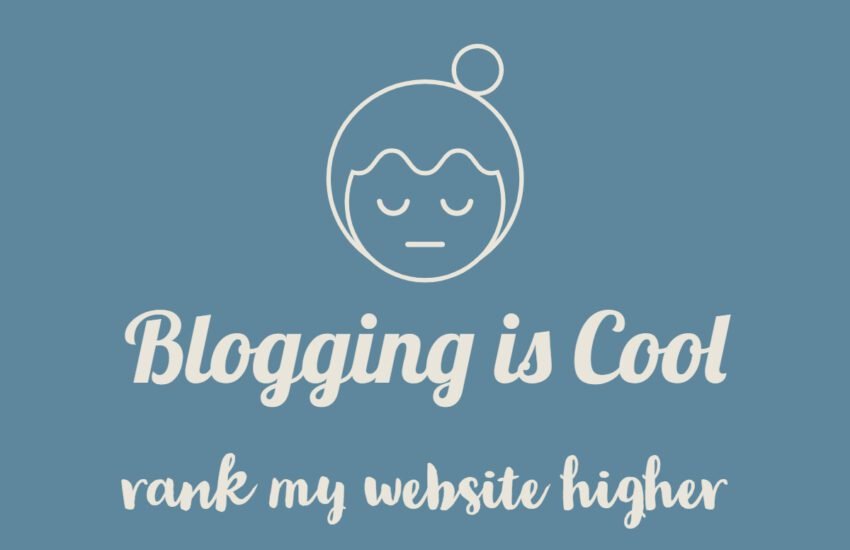Understanding Inbound Authority as Part of SEO for Your Blog
What is Inbound Authority?
Inbound authority refers to the credibility and trustworthiness of a website or webpage as perceived by search engines and users.
It’s like having a good reputation in the online world. Websites with high inbound authority are seen as reliable sources of information because they have earned quality backlinks from other reputable websites and have consistently provided valuable content to their audience.
Think of it as being the go-to person for advice or information on a particular topic because people trust what you have to say.
Inbound authority is important for improving a website’s ranking in search engine results and attracting more visitors who are searching for relevant information.
So, the higher a website’s inbound authority, the more likely it is to be seen as an expert in its field and receive organic traffic from search engines.
In the world of SEO, there is a major challenge that many people face – understanding inbound authority.
While some may believe that focusing solely on on-site SEO (techseo) can increase their website’s ranking, the reality is that it primarily channels incoming authority into highly optimized pages.
This strategy works well for websites with a significant amount of authority, such as big brands or sites that have been building their SEO for a long time.
However, for new or developing sites with little to no authority, this approach may yield minimal results.
How to Gain Inbound Authority
To gain inbound authority, which is crucial for improving a website’s visibility and credibility in search engine results, several strategies can be employed.
Creating Quality Content
One of the most effective ways to enhance inbound authority is by creating high-quality content that is valuable, informative, and engaging for the target audience.
This content should be relevant to the website’s niche or industry and provide solutions to the audience’s problems or answers to their questions.
By consistently producing such content, a website can attract organic backlinks from other reputable websites, which are essential for building inbound authority.
Outreach and Relationship-Building
Another strategy for acquiring inbound authority is through outreach and relationship-building.
This involves reaching out to other website owners, bloggers, influencers, and industry experts in the niche to establish connections and collaborations.
By networking with these individuals, website owners can increase their chances of earning backlinks from authoritative sources.
This can be done through guest posting, where the website owner contributes content to other websites in exchange for a backlink, or by participating in interviews, roundups, or expert panels where their expertise is showcased and linked back to their website.
Optimizing for Search Engines
Furthermore, optimizing the website for search engines is crucial for improving inbound authority.
This includes on-page SEO techniques such as optimizing meta tags, headings, and images with relevant keywords, as well as off-page SEO techniques such as building a diverse backlink profile from reputable sources.
Additionally, ensuring that the website is mobile-friendly, has fast loading times, and provides a positive user experience can also contribute to its overall authority in the eyes of search engines.
Leveraging Social Media
In addition to these strategies, leveraging social media platforms can also help boost inbound authority.
By actively engaging with the audience on social media, sharing valuable content, and participating in relevant conversations and communities, website owners can increase brand awareness and attract more traffic to their website.
Moreover, social media platforms can serve as additional channels for earning backlinks and building relationships with other influencers and content creators in the niche.
Constant Monitoring
Another important aspect of gaining inbound authority is monitoring and analyzing the website’s performance using web analytics tools.
By tracking key metrics such as website traffic, backlink profile, engagement rates, and search engine rankings, website owners can identify areas for improvement and adjust their strategies accordingly.
This data-driven approach allows them to make informed decisions about which tactics are most effective in increasing inbound authority and driving traffic to their website.
Is the Inbound Authority Permanent?
It’s important to recognize that authority is fluid, much like a gigantic stock exchange. Websites can gain or lose authority based on various factors.
While tech SEO is well-documented and there are numerous courses available, it is crucial to understand that it is just one aspect of the broader SEO landscape. Tech SEO can be further broken down into several sub-categories, presenting ample opportunities for creativity and innovation.
One common misconception is that SEO is solely about optimizing HTML quality. While this is indeed a crucial aspect, it is by no means the only tactic in the SEO toolkit.
There is a vast space for creativity in SEO, such as building comparison pages, creating brand takedown pages, or even developing satellite sites. Unfortunately, much of the SEO discussed in mainstream conversations tends to focus on basic and introductory topics.
For instance, questions like whether to have one page or two pages can be easily expanded to consider the possibility of having multiple pages, each serving a specific purpose.
Similarly, discussions about which schema to use may overlook the fact that schema markup is designed to be self-descriptive.
One key element that often goes unnoticed is the role of internal linking in shaping authority.
Understanding how to strategically use programmatic SEO to build auto-generated pages, connecting them with listicles, and acquiring incoming links can help in establishing points of authority beyond the third tier.
This aspect of SEO, often referred to as “big-boy-SEO,” is not extensively covered in mainstream discussions.
Another aspect that is often undervalued is keyword research. By exploring keyword opportunities and leveraging wordplay, marketers can capitalize on Google’s limited understanding of words.
For example, incorporating the word “Great” into generic product names, such as “Great Chairs” versus “Great-Gifted Chairs,” can create unique SEO opportunities. This highlights the multi-disciplinary nature of SEO, where marketing and creativity intersect.
Conclusion
Gaining inbound authority is essential for improving a website’s visibility, credibility, and ranking in search engine results.
By creating high-quality content, building relationships with other website owners and influencers, optimizing for search engines, leveraging social media, and monitoring performance, website owners can effectively enhance their website’s authority and attract more organic traffic.
While it may require time, effort, and patience, the benefits of increasing inbound authority can have a significant impact on the success and longevity of a website in the competitive online landscape.
SEO can be whatever you want it to be.
While on-site SEO and technical optimization are essential components, it is crucial to understand the broader concept of inbound authority.
Building inbound authority takes time and effort, and different strategies may be required for websites with varying levels of authority.
By embracing creativity, exploring keyword opportunities, and understanding the intricacies of internal linking, marketers can unlock the true potential of SEO and achieve meaningful results.


